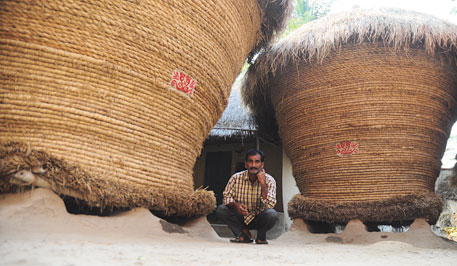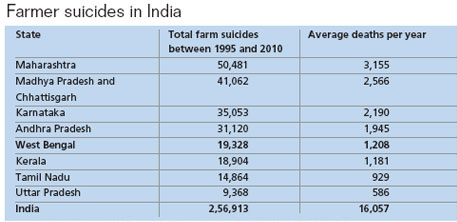Article and Image Courtesy : Down to Earth
Author : Sayantan Bera

Uttam Majumdar is unable to sell his 330,000 kg of paddy. He is under pressure from moneylenders from whom he had borrowed over 1 lakh at an interest rate of 60% a year
Long known as farmer friendly, West Bengal is now making headlines for farmers’ suicides. Reportedly 31 farmers, including landless farm labourers and small traders of agriculture produce, in the state took their lives between October last year and January.
Twenty-one of the 31 deaths are from the state’s rice bowl Burdwan district. And this is probably a reason the spate of suicides has garnered so much attention. Else, how can one justify the fact that despite an average of 1,200 farmer suicides per year in the past one and a half decades, the media seldom reported the deaths and the issue hardly ever turned political? In 2010 alone, according to the National Crime Records Bureau, 993 farmers in the state committed suicide (see table ‘Farmer suicides in India’ on the facing page).

National Crime Records Bureau, Accidental Deaths and Suicides in India, 1995-2010
Chief Minister Mamata Banerjee has rubbished the reports of farmer deaths as “lies” spread by the Opposition to malign her eight-month-old government. But the Congress, coalition partner of the ruling Trinamool Congress, agrees with the Left parties in opposition. They blame a faulty procurement system introduced by her government this agriculture season for the mess in the country’s largest paddy-growing state.
A visit by Down To Earth to Burdwan, however, reveals a deeper malaise. Farmers have committed suicide despite a bumper harvest. Most farmers in the district are big farmers with land holdings between one and five hectares. With yields above three tonnes per hectare, the district consistently outperforms the national average of 2.1 tonnes. Farmers say the above-average harvest led to market crash; paddy prices dipped below the minimum support price (MSP), the floor price decided by the Centre.













